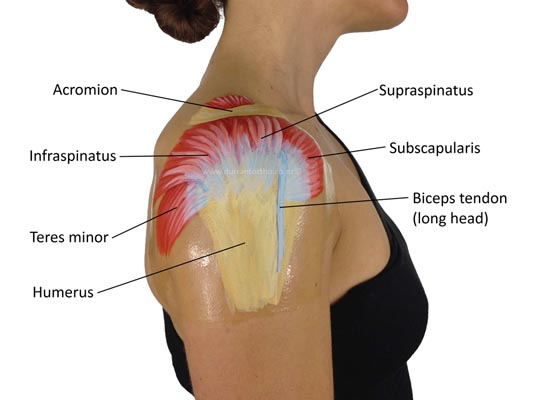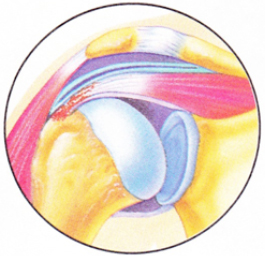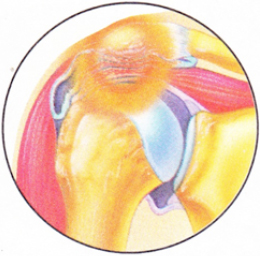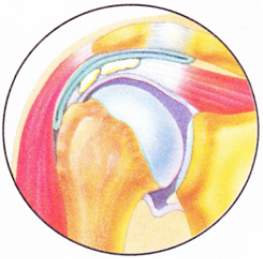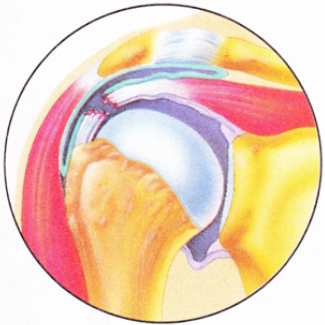Rotator Cuff Tear
Most tears are the result of a wearing down of the tendon that occurs slowly over time. This degeneration naturally occurs as we age. Rotator cuff tears are more common in the dominant arm. When one or more of the rotator cuff tendons is torn, the tendon no longer fully attaches to the head of the humerus. Most tears occur in the supraspinatus muscle and tendon, but other parts of the rotator cuff may also be involved. In many cases, torn tendons begin by fraying. As the damage progresses, the tendon can completely tear, sometimes with lifting a heavy object. Several factors contribute to degenerative, or chronic, rotator cuff tears:
- Repetitive stress. Repeating the same shoulder motions again and again can stress your rotator cuff muscles and tendons. Baseball, tennis, rowing, and weightlifting are examples of sports activities that can put you at risk for overuse tears. Many jobs and routine chores can cause overuse tears, as well.
- Lack of blood supply. As we get older, the blood supply in our rotator cuff tendons lessens. Without a good blood supply, the body’s natural ability to repair tendon damage is impaired. This can ultimately lead to a tendon tear.
- Bone spurs. As we age, bone spurs (bone overgrowth) often develop on the underside of the acromion bone. When we lift our arms, the spurs rub on the rotator cuff tendon. This condition is called shoulder impingement, and over time will weaken the tendon and make it more likely to tear.
When Rotator Cuff Surgery is Recommended:
When your pain does not improve with nonsurgical methods.
Your symptoms have lasted 6 to 12 months
You have a large tear (more than 3 cm)
You have significant weakness and loss of function in your shoulder
Your tear was caused by a recent, acute injury
When your cuff´s had enough
Pain was your first clue that something was wrong with your shoulder. You´ve been told that it´s a rotator cuff problem, and now you may wonder what´s behind that problem. The rotator cuff is vulnerable to tendon damage or inflammation (tendinitis) due to various causes, including irritation (overuse), pinching (impingement) calcium deposits (calcification), and splitting (tears). Any of these conditions can make your shoulder weak, tender, and painful.
Shoulder motions used during activities like golfing, pitching, or carrying luggage may cause repetitive stress within the rotator cuff, leading to irritation, bruising, or fraying. This can cause shoulder pain and weakness in the joint.
When the space is narrowed between the rotator cuff and the bony acromion above it, the bone pinches and irritates the cuff. This can happen when the cuff is weak, the bursa is swollen, or the acromion angles down too far. Tendinitis caused by impingement can occur with repetitive shoulder activities, such as sports or jobs involving overhead reaching.
Inflammation can sometimes result in a build-up of calcium deposits within the rotator cuff, leading to pain and loss of shoulder strength and movement.
Severe tendinitis from impingement, degeneration, or sudden injuries like falling can cause partial or complete tearing of the rotator cuff. This can result in shoulder pain, weakness, and loss of normal movement.
The Orthopedic Surgeons specializes in rotator cuff repair surgery and if you need more information with regards to scheduling surgery here in Puerto Vallarta please email us at info@orthovallarta.com or call us TOLL FREE 866.509.0571 or +1817.405.2778
